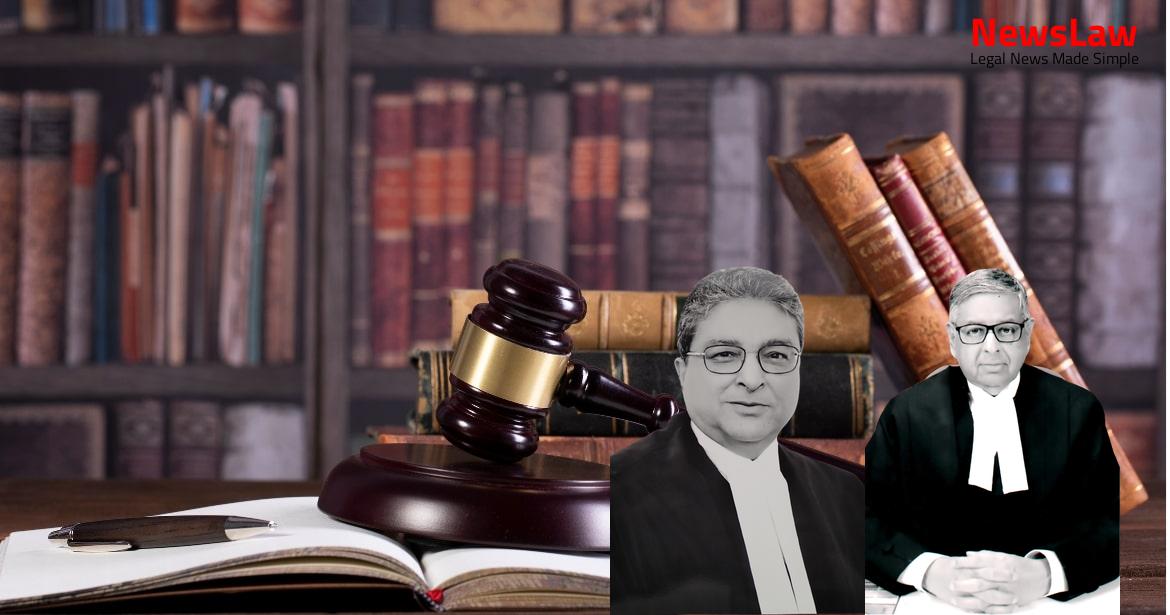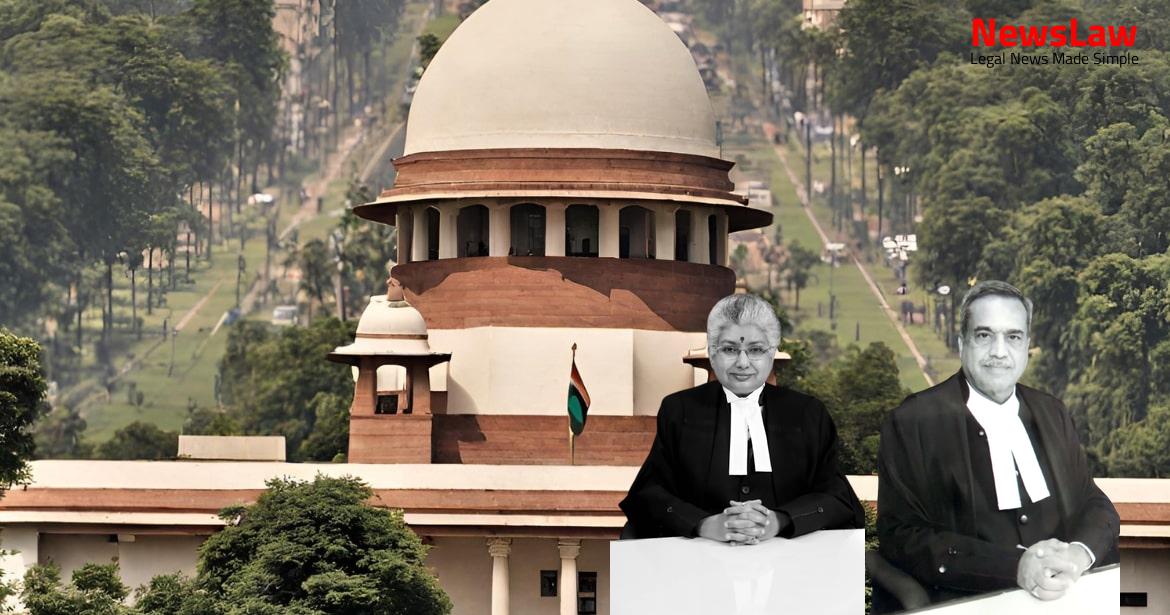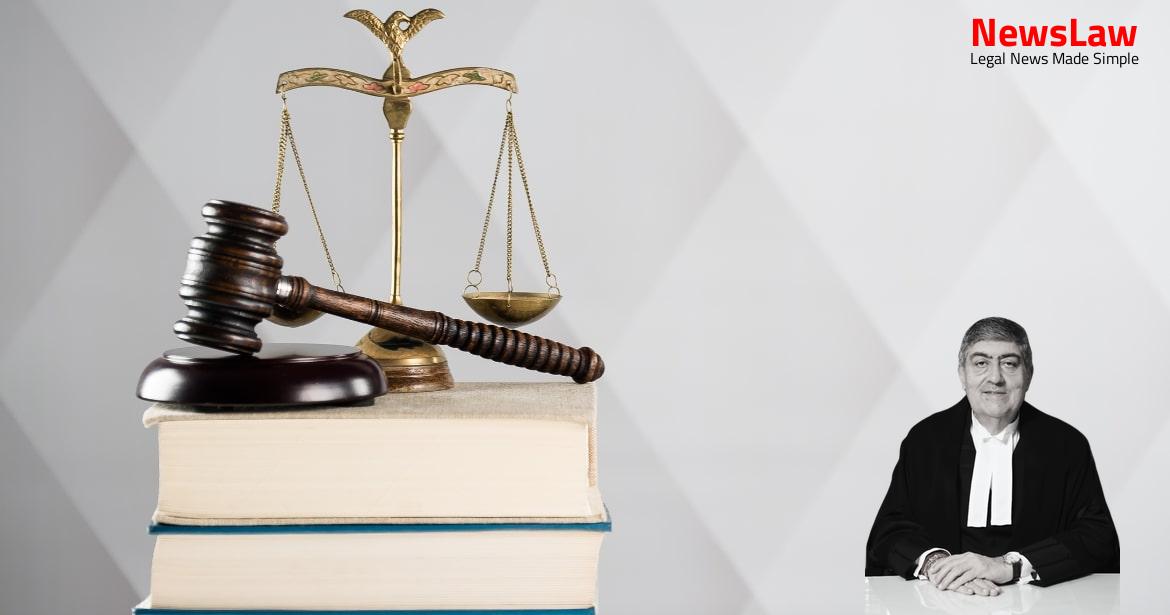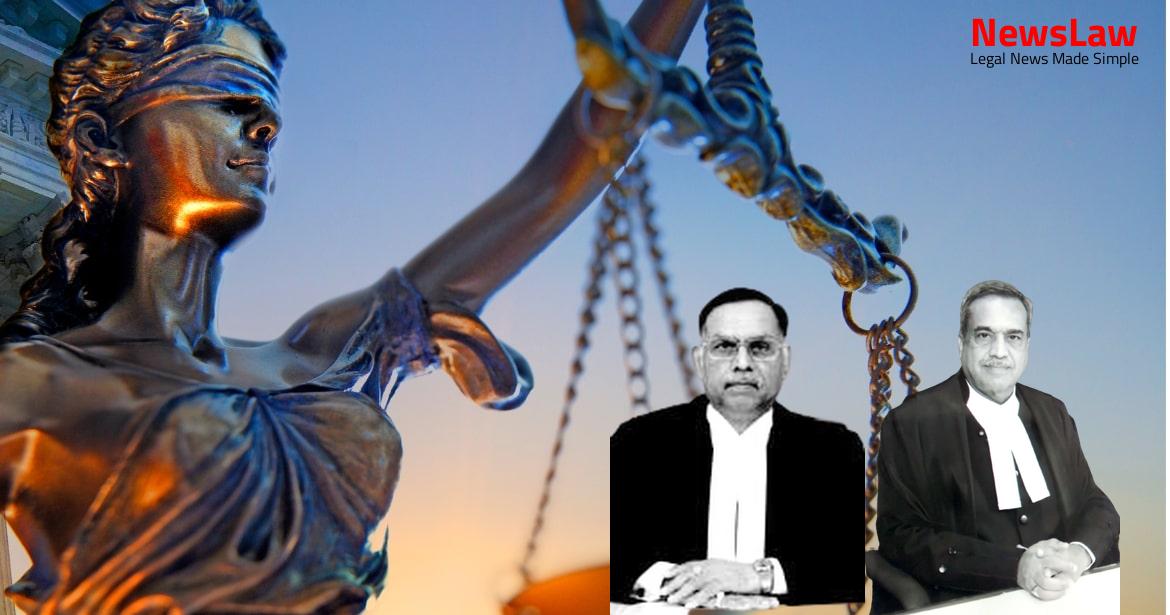The legal case delves into the complex issue of sub-letting in an eviction scenario. The court’s scrutiny focuses on the critical analysis of evidence and the burden of proof in determining sub-letting. Stay tuned to unravel the legal intricacies and the court’s in-depth examination of the matter.
Facts
- The eviction case of the respondent stands dismissed.
- The sixth respondent in the eviction petition was found to be occupying a public verandah outside the premises, no sub-letting or parting with possession was observed.
- The judgment of the Additional Rent Controller dated 05.06.1997 stands restored and revived.
- The main ground for eviction was sub-letting without landlord’s consent.
- Allegations were made against the respondents for sub-letting portions of the premises to medical practitioners and firms.
- Order passed on 5th June 1997 dismissed the petition due to lack of evidence of sub-letting or parting with possession.
- Respondent no. 5 (Young Friends & Co.) was found to be an entity of the respondent tenant only.
- Eviction proceeding initiated in 1974 with multiple contesting respondents.
- Landlord’s case primarily based on the evidence of its managing partner (AW-3) but lacked material evidence of a third party being in possession.
- The respondents were running a retail outlet at the subject-premises, specifically operating a chemist shop at that time.
- The appellant is confirmed as the landlord of the subject-premises, rented out in 1936.
- The appellant initiated the eviction proceeding under Section 14 of the Delhi Rent Control Act to recover possession of the shop room at Connaught Place.
- Three individuals and three firms were originally impleaded as respondents in the proceeding before the Rent Controller, but only three respondents are involved in the current appeal.
- No controversy exists regarding the impleading of the respondents in the appeal.
- ARCT’s erroneous judgment was based on conclusions contrary to the evidence presented
- Inferences drawn by ARCT were not permissible in law
- Appellate power was improperly used to substitute subjective satisfaction without justification
- Petition for eviction was allowed due to the above reasons
Also Read: Judicial Review in Disciplinary Proceedings
Issue
- The legal issue revolves around whether the act of the respondents in inducting the three medical practitioners constituted sub-letting.
- Resolution of this issue relies on the evidence presented before the fact-finding forum.
- The dispute at hand does not involve complex legal questions.
- The court’s interference under Article 136 of the Constitution of India is restricted to determining if the High Court’s decision to overturn the eviction order by the Appellate Tribunal was based on perversity.
- Appellant argues that the High Court exceeded its authority by interfering in a matter where the Appellate Tribunal’s decision was based on evidence and did not exhibit perversity meriting intervention under Article 227 of the Constitution of India.
Also Read: Legal Analysis in Company Law Case
Arguments
- Mr. Dhruv Mehta, a senior counsel, argued that sub-letting was proven at the appellate stage.
- The appellate forum had already made findings on the facts of the case.
- The High Court, in its supervisory jurisdiction, should not have overturned the Appellate Tribunal’s order.
Also Read: Secured Creditor Rights vs. Confiscation Orders Legal Battle
Analysis
- Occupation by licensees in the property is different from sub-tenants, especially when exclusive possession is granted under a secret arrangement.
- The High Court’s interference under Article 227 was deemed unwarranted as there was no perversity in the Tribunal’s order.
- The arrangement between the tenant and doctors on the Mezzanine floor was considered exclusive possession for the practice period, not just a mere license.
- The physical and exclusive possession is crucial in proving sub-letting, which may be inferred from the delivery of exclusive possession, even if monetary considerations are not overtly evident.
- The High Court’s role in scrutinizing fact-finding forums is to ensure if any conditions or principles of law are breached, not to re-appreciate evidence.
- The presence of the medical practitioners in the premises was established, and the Tribunal’s decision against the respondents was based on valid legal principles.
- Sub-tenancy or sub-letting occurs when the tenant gives up possession of the rented property to another person.
- The onus to prove sub-letting is initially on the landlord, but shifts to the tenant if parting of possession is established.
- Certain cases like Flora Elias Nahoum, Ram Murti Devi, and Bharat Sales Ltd. have discussed the burden of proof in sub-letting cases.
- The landlord must prove that a third party has exclusive possession of the property and that this possession was for monetary consideration.
- The respondent admitting the presence of a third party shifts the burden of proof to prove the nature and capacity of their presence in the property.
- Respondents remitted rupees ninety per month as original rent, which was refused by the appellant.
- Payment of occupation charges at the rate of rupees thirty thousand per month was stopped subsequently.
- Judgment of the High Court was set aside, and the findings of the Appellate Tribunal were restored.
- Respondents paid occupation charges at the rate of rupees thirty thousand per month from 15.05.2009 till 14.11.2018.
Decision
- Respondents have a month to vacate the premises and give an undertaking to do so by 28.02.2023.
- Appellant entitled to occupation charges of rupees thirty thousand per month until premises are vacated.
- Respondents must vacate premises within 53 weeks from the date of the order.
- Occupation charges must be remitted monthly to appellant’s account and any additional dues within six months.
- Specific amounts of one lac and twelve lacs to be remitted to the appellant within one month and six months respectively.
- Undertaking to be filed in court within one month.
- Respondents not allowed to create third-party rights regarding the premises during this period.
Case Title: M/S PURI INVESTMENTS Vs. M/S YOUNG FRIENDS AND CO. (2022 INSC 225)
Case Number: C.A. No.-001609-001609 / 2022



